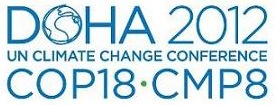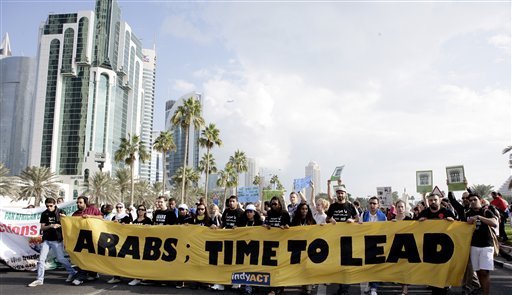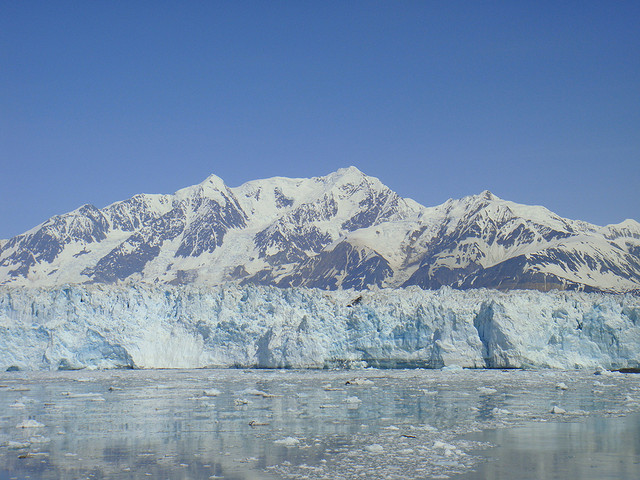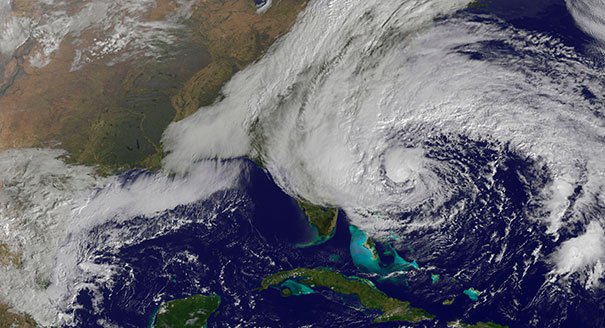I’m going to guess you’ve heard of the People’s Climate March by now. It’s been all over Facebook, the blogosphere, buses, and subway cars—it’s even shown up on network news, which has been something of a black hole for climate activism.
But in case you’re just getting [...]]]>
I’m going to guess you’ve heard of the People’s Climate March by now. It’s been all over Facebook, the blogosphere, buses, and subway cars—it’s even shown up on network news, which has been something of a black hole for climate activism.
But in case you’re just getting back from vacation (or a cave), here’s the deal: on Sunday, September 21st, tens of thousands of people are expected to flood the streets of New York City to call on global leaders to take action on climate change.
What’s been somewhat forgotten in the truly herculean effort to make this the biggest climate mobilization ever is what global leaders are doing in town in the first place.
The truth is, they’ve been called to New York by United Nations Secretary General Ban Ki Moon to meet in an unofficial capacity, because formal negotiations for a global treaty to stabilize the climate aren’t going so well.
Circular Debates
In fact, little more than a year out from the December 2015 deadline for signing a deal, countries can’t even agree on a fundamental approach to curbing heat-trapping greenhouse emissions.
One option is a binding treaty that mandates a clear target for reducing overall emissions and assigns each country a fair share of the work. The second option is a nonbinding “pledge and review” process by which each nation records what pollution cuts it thinks it can make. According to this plan, we’d add up those pledges, hope they’re enough to avoid climate chaos, and come back in a few years to see how governments have done.
The United States is the primary proponent of the latter option, for the record.
But emissions cuts are not the only hang-up.
If there’s frighteningly little political will to take common-sense action in the face of devastating ecological disruption—i.e., to stop burning fossil fuels and put clean renewable energy in place as fast as possible—there is even less appetite to pay for it.
At the Copenhagen climate talks in 2009, industrialized countries promised to create a “Green Climate Fund” to channel money to poorer countries to support their shift to clean energy and climate-resilient development. Since the global North made much of its wealth polluting the planet, it seemed only fair that it would pick up part of the tab to help the South grapple with the result.
But five years later, the fund lies conspicuously empty.
Rich countries say that in order to muster political support for climate finance, they need to see developing countries going out of their way to earn it. Poor countries wonder how they’re supposed to act first when many of them are on the front lines of climate chaos largely caused by pollution from rich countries.
Making Space for Polluters
These debates are nothing new. They’re repeated every year at the UN climate convention.
What’s different about the upcoming New York climate summit is its unofficial nature, which is meant to provide a “neutral” space where heads of state can have a more productive conversation. But by holding the summit outside of official negotiations, the secretary general has set a table where corporations and banks are on equal footing with governments. Literally.
The one-day climate summit will feature a high-level private sector luncheon where businesses will share actions they are taking “to demonstrate leadership on climate change and measures that governments can take to enable the private sector to develop long-term climate change solutions.”
The guest list includes global oil and gas company Royal Dutch Shell, international coal financier Barclays Bank, and South Africa’s power utility Eskom, which is currently building one of the world’s largest coal-fired power plants with funding from the World Bank. They’ll be joined by more than 130 other companies and banks.
That means our leaders aren’t just dithering at the edges while the planet burns—they’re actively inviting the very companies that are causing this crisis to help fix it.
The Bottom Line
“So what?” you might wonder. “Don’t companies have a role to play?”
Of course they do. But there’s no solution to climate change that doesn’t threaten the bottom line of companies that currently profit from dirty energy. That doesn’t mean that their interests never line up with what’s good for the climate. But when they don’t, it’s tough luck for people and the planet.
Unfortunately, governments have been abetting this “tough luck” for years. Look no further than the Green Climate Fund.
At the behest of governments—mainly from developed countries, where most multinational corporations are headquartered—the private sector has played a central role in the institution from the beginning. There is a special facility specifically to support the private sector, a private sector advisory group that makes policy recommendations on all aspects of the fund, and two private sector observers that comment on the proceedings of the fund’s board.
Ironically enough, one of these observer seats is filled by Bank of America, whose shareholders have pushed back against its financing of the coal industry.
Unsurprisingly, corporate influence is threatening the very purpose of the fund. The rules governing investment and what institutions can receive funding are being written with the express purpose of making the Green Climate Fund as attractive as possible to financial investors.
In a board discussion about whether to exclude oil, coal, and gas projects from receiving money from the green fund, for example, one private sector observer argued that “ruling out technologies” would tie the hands of governments trying to address climate change.
But wasn’t financing a transition away from these “technologies” the point of the fund to begin with?
Outflanked
At this point the small group of social movements and non-profit organizations trying to keep corporate influence in check at the fund are severely outflanked.
So while turning out in big numbers in the Big Apple is critical, it will take more than marching to compel governments to stop supporting the fossil fuel industry and start regulating and reducing climate pollution.
Imagine the collective power we could bring to bear if the 1,400-plus organizations endorsing the climate march—representing the labor movement, people of faith, youth, immigrant rights activists, and of course, environmentalists—pulled out all the stops and poured their resources into an uncompromising, coordinated “no more dirty energy” campaign: ne that forced governments to cut taxpayer subsidies to the fossil fuel industry, put our bodies in the way of fossil fuel extraction and transport, and moved money quickly to community-centered renewable technologies that already exist.
In the meantime, we can and should keep flexing our political muscle. One way is to “flood Wall Street,” as activists staying on in New York are planning to do after the climate march.
Kicking corporations and big banks—and their government enablers—out of the Green Climate Fund is another.
This post was originally published by Foreign Policy In Focus
Janet Redman directs the Climate Policy Program at the Institute for Policy Studies.
]]>
by Jim Lobe
While this blog is devoted to U.S. policy toward the Middle East, it should come as no surprise to regular readers that I regard climate change as likely to be the greatest challenge faced by the United States and the world over for the coming century and beyond.
[...]]]>by Jim Lobe
While this blog is devoted to U.S. policy toward the Middle East, it should come as no surprise to regular readers that I regard climate change as likely to be the greatest challenge faced by the United States and the world over for the coming century and beyond.
The most recent news, including the latest government report on how climate change is already impacting the United States, and the studies that came out three weeks ago regarding the apparently irreversible collapse of the West Antarctica ice sheet, clearly underline the rising stakes, not only from a strictly environmental point of view, but also with respect to national security. After all, as Tom Friedman and others have argued, the civil war in Syria owes much to the extended drought conditions that have prevailed in that country over the past decade and more, driving millions of mostly Sunni small farmers from the countryside into the big cities where they were unable to earn a decent living in fast-growing shanty towns that have mushroomed over that period. (Obviously, western-backed neoliberal economic policies and corruption didn’t help.) While that drought, like a similar phenomenon in central Mexico that has sent hundreds of thousands of people across international borders in search of work, may not be 100% provably attributable to global warming, there is sufficient consistency in the predictions by increasingly refined computer models developed by climatologists over decades to conclude that there is almost certainly a strong connection between the amount of carbon being pumped up into our atmosphere and these changes in weather patterns over significant swathes of our planet.
And, as the indefatigable Tom Engelhardt, in an essay about “climate change as a weapon of mass destruction“, requested of anyone in Wyoming to ask former Vice President Dick Cheney if they should happen to run into him:
How would he feel about acting preventively, if instead of a 1% chance that some country with weapons of mass destruction might use them against us, there was at least a 95% — and likely as not a 100% — chance of them being set off on our soil?
Of course, it’s Cheney and his neoconservative and right-wing friends (too often aided by liberal hawks like the Washington Post’s editorial board), who have consistently derided President Obama’s alleged timidity and failure to “lead” in foreign policy (by which they ordinarily mean using or threatening to use military force in dealing with any crisis). Indeed, just last week, in an interview with Fox News’ Sean Hannity, Cheney, who, next to George W. Bush, bears the greatest responsibility for the worst U.S. foreign policy debacle at least since the Vietnam War, remarked:
He’s a very, very weak president, maybe the weakest certainly in my lifetime. And I know from my own experience on a recent trip to the Middle East, spending several days talking with folks I’ve dealt with all the way back to Desert Storm, they all are absolutely convinced that the American capacity to lead and to influence events in that part of the world has been dramatically reduced by this president.
We’ve got a problem of weakness. It’s centered right in the White House.
This “weakness” is sometimes attributed by critics to Obama’s supposed left-wing worldview and/or naiveté. Arguing that Obama’s motivations are more cynical and political, others have noted its consistency with the general public’s allegedly “isolationist” tendencies and its disenchantment with the military “hammer”(that was used so promiscuously by Bush and Cheney), as expressed in countless surveys and polls.
In any event, this charge of Obama’s weakness, timidity, retreat, and lack of leadership has now become a neoconservative and Republican mantra repeated and recycled endlessly in the mass media as each new foreign policy challenge moves into the spotlight — from Benghazi to Beijing to Bergdahl. It has become the meta-narrative for analyzing Obama’s foreign policy, from which even many Democrats (watch Hillary Clinton carefully; it’s already out there that she opposed a deal to free Bergdahl) are now trying hard to distance themselves.
Of course, it is in this context that it’s important to ask how such a weak, timid, and “lead-from behind” president could also address climate change as he did earlier this week by taking executive action to curb emissions from coal-fired power plants — a move that appears to offer him no particular political advantage and may indeed prove counter-productive to his hopes of retaining Democratic control of the Senate. In his blog post at the National Interest, Paul Pillar, who, as National Intelligence Officer for the Middle East and South Asia, commissioned the pre-invasion study that predicted much of the fiasco that followed the Iraq invasion — only to be ignored by Cheney, Bush & Co. — was similarly struck by this apparent anomaly and wrote a blog post entitled “Leading from the Front on Carbon Dioxide.” It deserves more attention.
A constantly recurring theme in criticism of Mr. Obama’s foreign policy is that he allegedly is a weak leader, or when he leads does so only from behind. An action such as his recent move on power plant emissions highlights how such accusations, insofar as they are not just opposition for the sake of opposition, really aren’t about leadership at all but instead about disagreement on the substance of whatever issue is at hand.
Much criticism of the president has combined an image of him as a weak, stay-in-the-rear leader on foreign policy with a picture of an over-reaching, rule-flouting chief on domestic policy. Opponents will catalog the new rules on power plants in the latter category. Efforts to curb destructive emissions are ultimately a foreign policy problem, however, because Earth is a single planet with a single atmosphere. Pollution problems vary with the locale, and it may be sensible practical politics for the president to talk about respiratory problems among American children, but climate change is global. The heaviest lifting will involve getting China and other heavy polluters to do their part. It is a task as troubling and challenging as any that involve China using dashed lines on maps to make territorial claims.
The task is hard enough given the belief of developing countries that the United States and other Western nations already had their opportunity to develop and to become prosperous and to pollute with impunity as they did so. It would be discriminatory, according to this belief, for late developers to be subject for environmental reasons to more economic restraints than early ones. The least the United States can do, to keep this task from being any harder than it has to be, is to exercise leadership by setting an example and cleaning up its own act.
President Obama also gets criticized for playing small ball in foreign policy, a criticism he partly brings on himself by talking about hitting singles and doubles rather than home runs. Stopping climate change is not small ball. Saving the planet would be a home run. Small ball is played by those, Democrats as well as Republicans, who would rather talk about the health of the coal industry in Kentucky than about the health of the planet. And small ball is played by those who cannot or will not see beyond the powering of most of the world’s economy through any means other than burning what alternative energy guru Amory Lovins has called “the rotten remains of primeval swamp goo.”
Photo: The melting of Mexico’s Orizaba glacier is another consequence of global warming. Credit: Mauricio Ramos/IPS
]]>They need your help for their first collaborative project that [...]]]>

Credit: T.K. Roy/ IPS
Frustrated by the lack of interest in climate coverage by mainstream media, 15 young journalists on 4 continents want to bring a new collaborative approach to climate change journalism. This is a voluntary effort to both increase and improve reporting called the Climate News Mosaic (CNM).
They need your help for their first collaborative project that will connect what’s happening at the UN climate conference (COP) in Warsaw this November with climate impacts/perspectives on the ground from their home countries.
Here’s how it will work:
* 2 or 3 journalists will go to the COP in Warsaw to report and co-ordinate. The rest will be back home doing local coverage on climate. Everyone contributes and shares interviews, links to reports, sources, A/V and so on.
* Members (mainly freelancers) do articles, audio and video for their own outlets. Some 25-30 original stories in at least 4 languages will be made available for use in whole or in part by any media outlet anywhere in the world.
* A live blog placed on a number non-profit news sites like IPS, Earth Journalism Network , and others will bring the public a wealth of current info on what is happening at the Warsaw COP but also from other countries. (i.e. a short video from Warsaw, a photo from a rally in San Francisco, a soundbite from a press conference in Nairobi, a quote from an interview with an Italian scholar.)
Learn more about CNM participants on this global map with short bios.
I’m sort of the mentor having used crowd-sourced funding to support my science and climate journalism the past 4 years. That support kept me going and in 2012 I was a co-winner of the Prince Albert/United Nations Global Prize for media coverage of climate change.
For-profit media owners are simply not interested in good science and environment reporting. Coverage of climate change has been in sharp decline since the UN climate summit in Copenhagen in 2009. Even the New York Times closed its environment desk this year. It’s not that there isn’t a lot to report on. Quite the opposite.
Here’s how you can help:
Please spread the word about this project. We need to raise $6000 for travel, accomodation and other costs to do the Warsaw COP reporting. Please click on Indiegogo to contribute what you can. (There are ‘perks’ for contributors including a Google Hangout.)
This is a fresh new idea: Independent journalists in different countries working together to provide all of us with the news and information on the most important issue of our time.
Only 3 days to make a difference: Please join us in supporting climate change reporting.
** Stephen Leahy is IPS’ senior Climate Correspondent. You can read his articles here
]]>]]>
]]>
Victory here is to change a word, [...]]]>

Qatar and Doha at night
You would never know I am an urgent, existential issue threatening human civilisation at the U.N. climate summit here in the final week in Doha. It is more like a trade negotiation, where hard-fought agreement to change the word “shall” to “may” in a document is considered progress.
Victory here is to change a word, not the world.
Three years ago, more than 100,000 people marched through the streets of Copenhagen during COP15 shouting “System Change, Not Climate Change!” There is not even a whisper of that call here at COP18.
Outside the security barriers, the Qatari capital of Doha, one of the world’s most energy-profligate cities, ignores what’s going on inside COP18. There was a march on Saturday, the first ever in the city, apparently. Three hundred mainly young people marched asking Arab nations to lead in taking action to reduce fossil fuel emissions.
Marchers were careful not to say “system change” in a country where a poet was jailed for life only two days before. He had written a poem deemed insulting to Qatar’s Emir, the ruler of this country built on gas and oil.
And yet “system change” is clearly what you need. Your global economy is based on fossil fuels that put more than 30 billion tonnes of carbon dioxide (CO2) into the atmosphere every year. It is this carbon pollution that makes me ever more powerful. And don’t forget your carbon footprint will be cooking the planet long after you are gone. What will your grandchildren and great-grandchildren think of the way you spent your life?

No one wants to leave this awful legacy. So why is there so little change? Coal, gas and oil companies represent the richest and most powerful industry ever. If they don’t want change, nothing will change. After 18 years of U.N. climate negotiations, humanity is still increasing CO2 emissions. In fact, emissions will reach yet another record high in 2012.
Nothing here at COP 18 will prevent 2013 from setting another record for CO2 emissions.
The U.N. climate negotiations may be the most complex and difficult ever attempted, but all that is being decided is who will do what, by when and who will pay. Everyone here knows the real problem is a “lack of political will”. Political will is not at COP 18, it resides in national capitals. And that’s where fossil fuel interests are most at home.
I am not a science problem, or a technical issue or even an economic challenge. My growing power is a failure of democracy. The interests of a few are trumping the welfare of the many – and the welfare of seven generations to come.
]]>
I’m partial to that last one.
But since you created me, you can call me whatever [...]]]>

Photo Credit: Tom Mascardo / CC BY-ND 2.0
I’ve been getting a lot of press lately what with Hurricane Sandy and the U.N. climate summit in Doha, Qatar. Please allow me to introduce myself. You’ve been calling me “global warming” or “climate change” or even “climate weirding”.
I’m partial to that last one.
But since you created me, you can call me whatever you like. I am the result of burning fossil fuels and cutting down forests, which have added 40 percent more carbon dioxide (CO2) to the atmosphere than there was a hundred or so years ago. That extra CO2 has made the entire planet, including the oceans, hotter.
The warming so far looks small at 0.8 degrees C, but the impacts have been huge, resulting in billions of dollars in damages and hundreds of thousands of deaths every year from extreme weather and loss of food production. [http://daraint.org/] The heating of the planet will be far greater – three or four times more – without the major cuts in CO2.
Something like 17,000 people from every nation on the planet have come to the big U.N. climate summit in Doha called COP 18 (Convention of the Parties to the U.N. Framework Convention on Climate Change). They are here to figure out how to keep me – global warming – from getting stronger and becoming ever more dangerous.
Everyone here knows what needs to be done: stop burning fossil fuels and cutting down forests. The problem they have struggled with over the past 17 COPs is how to do it, who goes first, and how big the reductions should be. And that has become a very messy problem.
Some say it’s a “wicked” problem – unsolvable by normal means.
Most delegates work hard during these two-week annual COP meetings. Many meet in supplementary meetings three or four times a year. There have been successes. The European Union (EU) and its 27 member nations use less fossil fuels now. On paper, the EU has cut its CO2 emissions by 20 percent compared to those in 1990.
However, in reality they “exported” those emission cuts to China and other countries by getting them to manufacture the ever-increasing amounts of goods and services Europeans buy.
More than 25 percent of China’s emissions result from making goods they sell to other countries.
But all that matters to my increasing strength and power is the total amount of CO2 pumped into the atmosphere. It makes no difference where it comes from.
Two things to remember about CO2: First, it accumulates, piling up in the atmosphere and making me stronger. Second, CO2 stays up there for a hundred or more years. CO2 emitted today will still be trapping heat from the sun on Nov. 27, 2112.
Every year, the amounts of CO2 being added set a new record because it is always more than the year before. The one exception was the 2009 global recession. Emissions for 2009 were one percent less than 2008. However, in 2010 emissions jumped five percent over 2009, the biggest increase ever. Last year, global emissions increased three percent.
The folks here in Doha have their work cut out for them. If global emissions don’t begin to decline for good in the next three to five years, so much CO2 will pile up it is likely I will become extremely dangerous climate change.
After 17 years, will this COP be any different? The urgency and awareness has never been greater. Everyone knows what needs to be done, but who will be willing to do it?
]]>With President Barack Obama winning re-election, foreign policy analysts here are pondering whether his victory will translate into major changes from the rather cautious approach he followed overseas in his first term.
For now, speculation is focused primarily on the Middle East, the region that has dominated the international agenda [...]]]>
 With President Barack Obama winning re-election, foreign policy analysts here are pondering whether his victory will translate into major changes from the rather cautious approach he followed overseas in his first term.
With President Barack Obama winning re-election, foreign policy analysts here are pondering whether his victory will translate into major changes from the rather cautious approach he followed overseas in his first term.
For now, speculation is focused primarily on the Middle East, the region that has dominated the international agenda since 9/11, much to the frustration of those in the Obama administration who are hoping to accelerate Washington’s “pivot” to the Asia/Pacific, especially in light of growing tensions between China and Japan and the ongoing political transition in Beijing.
Others are hoping that Obama will be willing to invest a fair amount of whatever additional political capital he gained from his victory on reviving international efforts to curb global warming, a challenge that thrust itself back into public consciousness here with hurricane-force winds as “Super-Storm Sandy” tore up much of the northeastern coast, including lower Manhattan.
Indeed, long-frustrated environmental groups seized on Obama’s allusion to the “destructive power of a warming planet” in his Chicago victory speech early Wednesday’s morning as a hopeful sign that the president, who hardly mentioned the problem during the campaign for fear of key coal-producing swing states, notably Ohio, may make climate change one of his “legacy” issues.
“President Obama’s legacy will be shaped by his ability to take on big challenges, including climate change, clean energy, environmental protection, and sustainability,” said Andrew Steer, president of the World Resources Institute (WRI).
As with climate change and other issues with major domestic implications, however, Obama will be constrained by certain political realities, most notably the fact Republicans will still hold a solid majority in the House of Representatives and 45 seats in the Senate, enabling them to effectively block any legislation to which they are strongly opposed.
“You’ve had an election that more or less preserves the status quo in the House,” noted Charles Kupchan, a foreign policy expert at the Council on Foreign Relations. “At a time when Obama’s top priority is getting the economy going, I’m not sure we’ll see a major initiative on climate change.”
And, while Obama won a sturdy majority of the electoral vote, his margin in the national vote is unlikely to exceed three percent when all the votes are counted. As a result, the institutional and partisan balance of power remains much the same as before the election.
Moreover, the fact that foreign policy did not play much of a role in a campaign dominated by the economy – only five percent of voters told pollsters as they left the voting booth that foreign affairs was the most important issue facing the country – suggests that Obama cannot claim a clear mandate for major policy changes.
Still, the fact that his Republican challenger, Mitt Romney, dropped his earlier hawkish, neo-conservative rhetoric as the election approached and essentially embraced Obama’s general policy approach, including even in the Middle East, in the closing weeks of the campaign was taken by some as a green light, if not a mandate, to pursue the president’s instincts.
“The election campaign, and not only the outcome, should be seen as the rout of the neo-conservatism of the disastrous 2001-2006 period of the Bush administration and the consolidation of a broad, bipartisan foreign policy consensus,” wrote Middle East analyst and occasional White House adviser Marc Lynch on his foreignpolicy.com blog Wednesday.
He predicted that what he called Obama’s “caution and pragmatism” in the region, particularly with respect to generally supporting democratic transitions, seeking ways to convene Israelis and Palestinians, engaging moderate Islamists, and pursuing Al-Qaeda and its affiliates, is unlikely to change, although he suggested that bolder approaches in some areas were called for.
In particular, the administration should begin “serious efforts at real talks with Iran” on its nuclear programme and “be prepared to take yes for an answer,” he wrote, echoing a consensus among realists in the foreign policy establishment that Obama will have greater flexibility to strike a deal with Tehran now than at any time in the last two years.
Reports of back-channel talks between the U.S. and Iran in preparation for a new round of negotiations between Tehran and the so-called P5+1 powers after the election have been circulating for two weeks.
Lynch also called for Washington to get behind a major push to unify the two main Palestinian factions and “encourage the renewal of a peace camp in the upcoming Israeli election” in hopes reviving serious efforts to achieve a two-state solution – a recommendation that also been urged by many analysts disappointed by Obama’s failure over the last two years to apply real pressure on Israel to halt the growth of Jewish settlements in the West Bank and East Jerusalem.
Since 2010, Obama and his fellow Democrats have avoided confronting Israeli Prime Minister Benjamin Netanyahu – who made little secret of his support for Romney – on either issue in major part because they felt their re-election chances depended heavily on the neutrality, if not the goodwill of the powerful Israel lobby.
Remarkably, however, those fears appear to have proved largely unfounded. Despite the expenditure of tens of millions of dollars in swing states on ads by the hard-line neo-conservative Republican Jewish Coalition and the Emergency Committee for Israel, as well as repeated charges by Romney that Obama had “thrown Israel under the bus,” 70 percent of Jewish voters opted for the president – a result that suggested that at least those hard-line neo-conservative elements of the lobby most closely tied to Netanyahu and the settler movement were not nearly as powerful as generally believed.
If so, Obama may have more room for manoeuvre on both Israel-Palestine and Iran, if he chooses to exercise it, than he himself previously thought.
Indeed, the election results were greeted with some considerable anxiety by Netanyahu’s supporters both here and in Israel.
“(R)emember that Obama is deeply committed to three things: global nuclear disarmament, rapprochement with the Islamic world, and Palestinian statehood,” wrote David Weinberg Wednesday in Israel Hayom, an Israeli newspaper funded by U.S. casino billionaire Sheldon Adelson, a major Netanyahu backer who also funded the election ads against Obama.
“I believe that he will forcefully act to progress on all three fronts, and this could bring him into conflict with Israel,” he added. “So start filling your sandbags. We’re in for a rough ride.”
Moreover, surveys of Jewish voters nationwide and in the swing states of Ohio and Florida commissioned by J Street, a “pro-peace” Zionist group, found that Obama’s tally among Jewish voters was only four percent less than in 2008 – roughly the same proportionate loss he suffered among virtually all demographic groups, except Latinos, who increased their support for the president significantly compared to four years ago.
The surveys also found overwhelming (79 percent) support for the creation of a Palestinian state in the West Bank and Gaza and East Jerusalem, 76 percent support for an active U.S. role in negotiating a settlement, as well as a significant plurality for continuing diplomacy with Iran.
Still Kupchan believes Obama is unlikely to aggressively challenge Netanyahu, especially on the Israel-Palestinian issue.
“I think the chances of a major push on the peace process are slim,” said Charles Kupchan, a foreign policy expert at the Council on Foreign Relations. “That would happen only if there is an opening of sorts in the region or if it comes primarily from within Israel and a shift in the electoral landscape there that gives it Netanyahu an incentive to do something bold.”
But he, too, predicted that Obama will try harder to reach some agreement with Iran in the coming months while continuing to resist intervention – especially military intervention – amid the continuing turmoil in the Arab world.
“The one place you’ll see a growing footprint and presence and growing activism,” he said, will be in Asia, especially if “things heat up more over territorial disputes between China and its neighbours. And the new Chinese leadership may pursue a more confrontational stance which could in turn invite an American response in kind.”
]]>]]>
 ]]>
]]>These substances have detrimental impacts on human health and a warming influence on the atmosphere, where they remain for periods of up to 15 years.
The new Latin American Network for the Reduction of Short-Lived Climate Pollutants aims “to work with governments to find and implement effective solutions as soon as possible,” Astrid Puentes, the co-director of the Inter-American Association for the Defense of the Environment and one of the network’s founders, told Tierramérica.
Other participating organizations include the Mexican Environmental Law Center, the Center for Human Rights and the Environment – which will coordinate the network for the first three years – and the International Institute for Democracy and Electoral Assistance, among others.
]]>